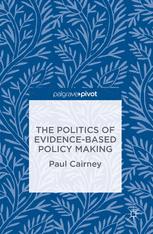

Most ebook files are in PDF format, so you can easily read them using various software such as Foxit Reader or directly on the Google Chrome browser.
Some ebook files are released by publishers in other formats such as .awz, .mobi, .epub, .fb2, etc. You may need to install specific software to read these formats on mobile/PC, such as Calibre.
Please read the tutorial at this link: https://ebookbell.com/faq
We offer FREE conversion to the popular formats you request; however, this may take some time. Therefore, right after payment, please email us, and we will try to provide the service as quickly as possible.
For some exceptional file formats or broken links (if any), please refrain from opening any disputes. Instead, email us first, and we will try to assist within a maximum of 6 hours.
EbookBell Team

5.0
30 reviewsThe Politics of Evidence Based Policymakingidentifies how to work with policymakers to maximize the use of scientific evidence. Policymakers cannot consider all evidence relevant to policy problems. They use two shortcuts: ‘rational’ ways to gather enough evidence, and ‘irrational’ decision-making, drawing on emotions, beliefs, and habits. Most scientific studies focus on the former. They identify uncertainty when policymakers have incomplete evidence, and try to solve it by improving the supply of information. They do not respond to ambiguity, or the potential for policymakers to understand problems in very different ways. A good strategy requires advocates to be persuasive: forming coalitions with like-minded actors, and accompanying evidence with simple stories to exploit the emotional or ideological biases of policymakers.